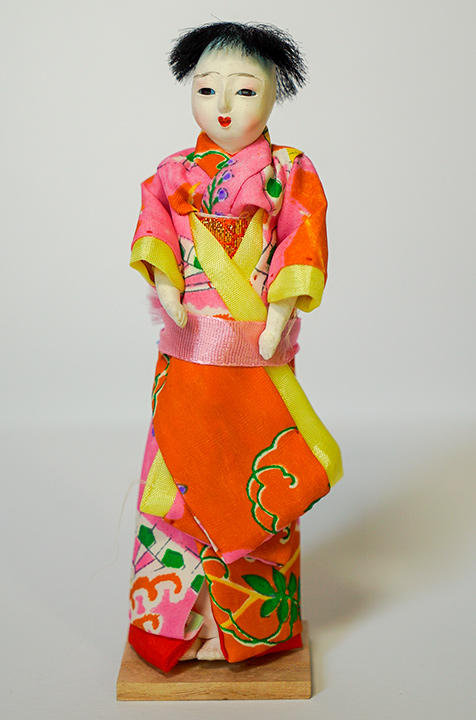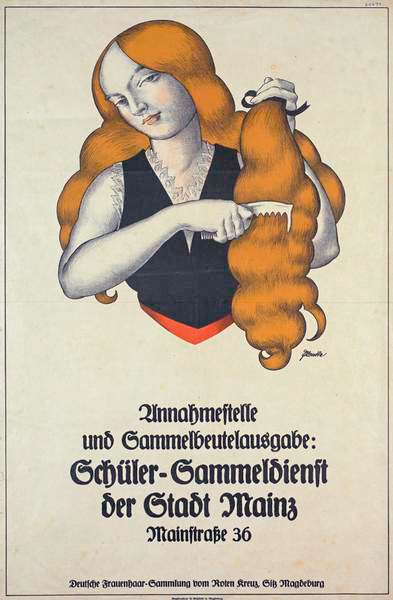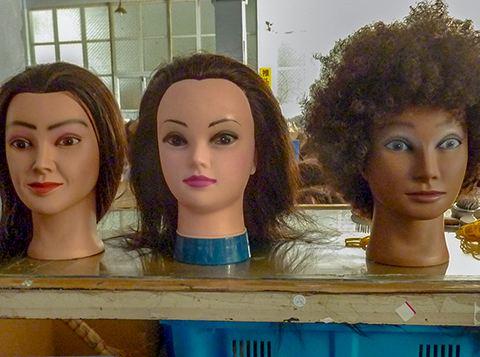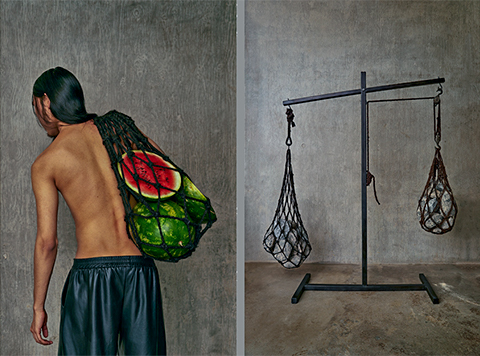Hair! Human Stories

Jane Hoodless, Hair Receivers, 2017

Jane Hoodless, Hair Receivers, 2017
A journey into the unexpected worlds of hair
Hair! Human Stories is a pop up exhibition which explores the extraordinary qualities and uses of human hair - our original fibre.
Curated by anthropologist, Emma Tarlo, the exhibition brings together her ethnographic photographs documenting the global trade in human hair with hair-related ephemera, contemporary art works made from human hair by artists and designers, and short films exploring the significance of hair in people's lives.
Hair poses many questions: Why do our feelings towards it change so dramatically when it is cut from our heads? Why do we treat human and animal hair differently? What is it about hair that lends it to so many unexpected uses?
The exhibition was first shown in London at the Library Space in Battersea, June 7th-26th 2018, sponsored by INFRINGE and Goldsmiths Unit for Visual Anthropology. The programme of events included artist-led workshops for recycling hair, drawing hair, and embroidering with hair, and hairy conversations including the art and politics of black hair.
Emma Tarlo is a professor of anthropology at Goldsmiths. She is author of several books on dress and material culture and has curated exhibitions in India and Britain. From 2013-2016 she conducted research on hair funded by the Leverhulme Trust. Her book, Entanglement, the Secret Lives of Hair was awarded the 2017 Victor Turner prize for Ethnographic Writing.
Interview with Emma Tarlo discussing Entanglement@ InFringe
If you are interested in hosting a new incarnation of Hair! Human Stories, please contact Emma Tarlo. She is open to discussions about how to adapt the exhibition to new spaces and audiences.

Japanese doll ... without her wig!
Hair is saturated with personal and cultural expectations and desires but it is also a natural fibre that is difficult to control. Once cut from the head, does it still represent us or take on a life of its own?

WW1 poster calling on German women to offer their hair for the war effort.
In many parts of the world hair is treated as a human crop – easy to grow but difficult to harvest. Supplies are effected less by weather conditions than by religion, politics and global economics.

Jenni Dutton, Human Hair Dress
Human and animal fibre have much in common yet we tend to think of them as conceptually different. How might we rethink their relationship?

Wig mannequins in factory, Xuchang, China
The human hair trade relies on high levels of hand labour performed by a vast and largely invisible labour force in factories and workshops in Asia. China now houses the biggest concentration of hair factories in the world. Here black hair is transformed to suit the tastes and demands of the world market.

'Brazilian' human hair extensions
Hair products are fetishized, sexualised and commercialised in the market, but they also become incorporated into new lives. Wigs and hair pieces offer a range of possibilities from protection, transformation, fashion, beauty and disguise.

Sanne Visser, The New Age of Trichology
How might we rethink our relationship to the hair that falls from our heads? What recycling possibilities does it offer?












Hair! Human Stories / London was supported by Goldsmiths, INFRINGE and Hacketts Hair Salon.
Exhibition designers:
Caitlin Storrie and Calum Storrie
Assistant Curator: Gabriela Nicolescu
INFRINGE: Antony and Pat Mascolo, Emma de Clercq and Alex Mascolo
Hacketts: Susan Hackett and Karmen Alcala
Goldsmiths Department of Anthropology and Centre for Visual Anthropology
Prangsta Costumiers
Raoul Wig Makers
Rifka Wigs Ltd.
Daniel Galvin
Artists: Stacy Bias, Alix Bizet, Sarah Cheang, Akinola Davies Jr., Jenni Dutton, Cyndia Harvey, Jane Hoodless, Erwan Fichou, Tabitha Moses, Sanne Visser
Contributers: Lisa Meyer, Gary Price, Emma Dabiri, Adom Philogene Heron, Sally Kindberg, Sifa Mustafa, Paaras Abbas, Carole Thompson, Justine Waldie, Gary Price Frankie, Veerle Tygat, students and staff in the Department of Anthropology, Goldsmiths and all those who have contributed their hair and thoughts to this exhibition.